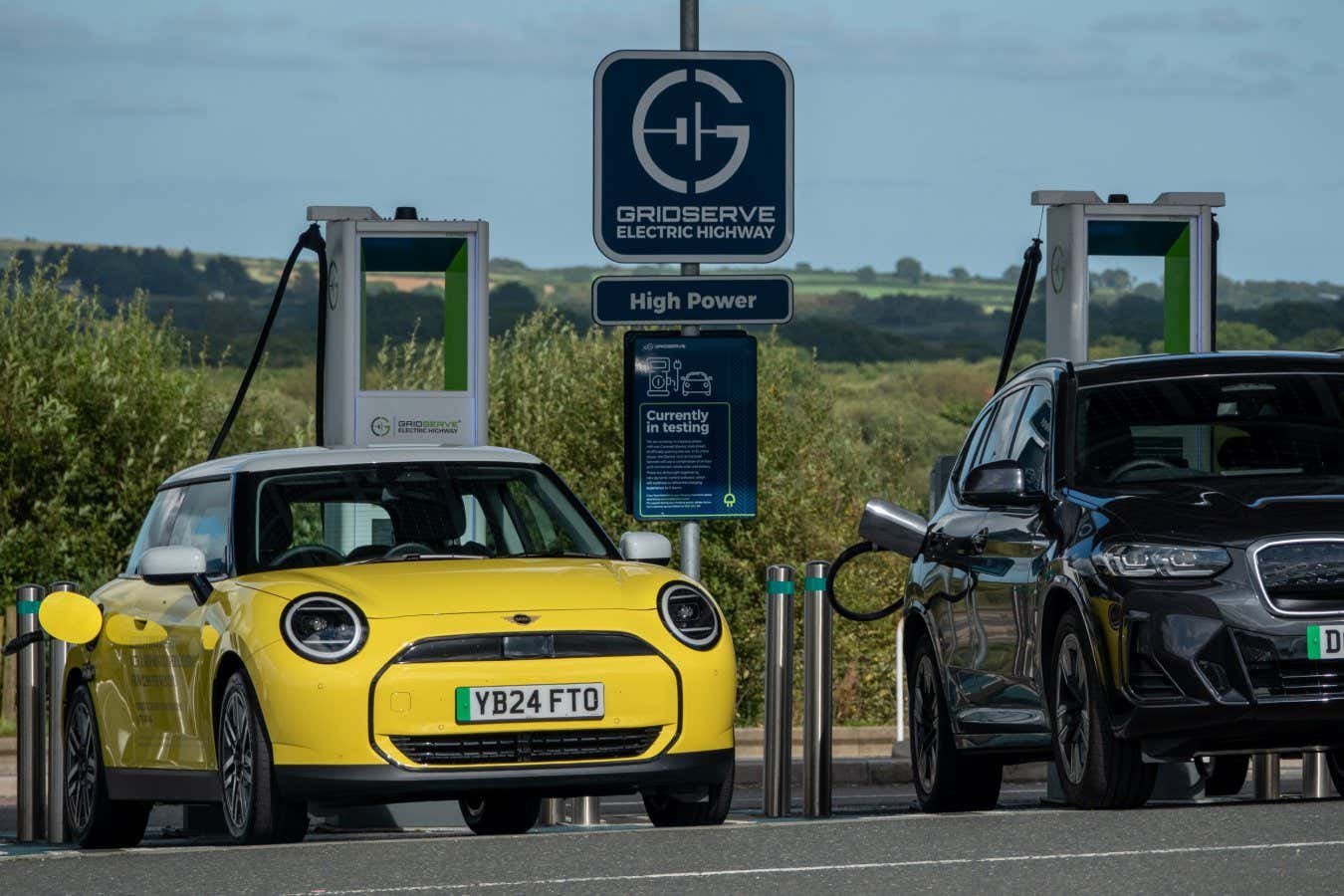An electric vehicle charging station in Cornwall, UK
Matt Cardy/Getty Images
Electric vehicles (EVs) now last as long as gasoline and diesel alternatives—and their improvement in bond performance outpaces fossil fuel-powered cars every year because the technology is still maturing.
Robert Elliott of the University of Birmingham, UK, and his colleagues analyzed almost 300 million records from the UK’s mandatory roadworthiness test, called the word that shows the condition, age and mileage of Veho on the road between 2005 and 2022. This covered some 29.8 million vehicles in all.
The results showed that EVs now have an average lifespan of more than 18.4 years, surpassing the average diesel vehicle at 16.8 years and nearly matching the average gasoline vehicle at 18.7 years. The average EV now covers 200,000 kilometers over its lifetime, surpassing the 187,000 km clocked up by petrol counterparts, but falling short of the 257,000 km averaged by diesels.
Elliott says the results from these electric cars are not only a viable alternative to gasoline and diesel, but in some ways already beat them. The research also shows that long-term performance is improving: the probability of an EV failing and ending up on the scrapheap in a given year has fallen twice as fast as for petrol vehicles and about six times as fast as for diesel.
“The early electric cars weren’t that good, and they weren’t that reliable,” says Elliott. “But the most important point, I think, is that the technology is improving very quickly.”
“We are not environmental crusaders. We just want to give the facts. Electric cars and the batteries, they just live a long time and the technology improves and it would have improved again since this study,” he says.
Although the word data does not include information on how much maintenance and repair cars require between tests, only their total lifetime, other research from the United States has shown that maintenance costs for electric cars are about $0.06 per Mile, while for internal combustion engines the figure is $0.10 per Miles.
Rachel Aldred of the University of Westminster, UK, says moving away from petrol and diesel vehicles will bring benefits in combating climate change and air pollution, but she stresses that EVs are no silver bullet.
“It is still a very inefficient and limited solution,” says Alloud. “If most people use a private motor vehicle to get surround sound, there is a whole load of negatives around lack of physical activity, around road damage and [residual] So good pollution – although clearly much better [than petrol or diesel vehicles]. “Walking, or its equivalent, cycling and public transport must be prioritized for people who can use these modes for trips,” she says.
Subjects:
- Transportation/
- Electric vehicles
